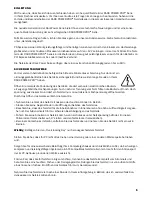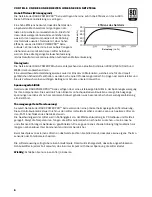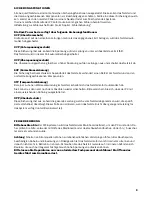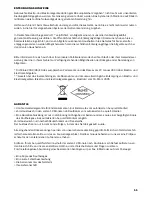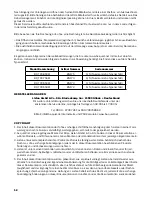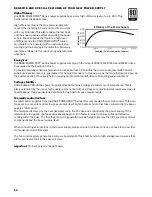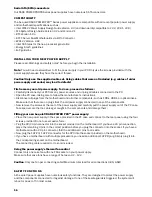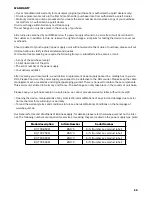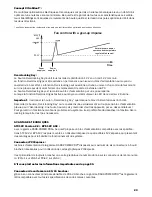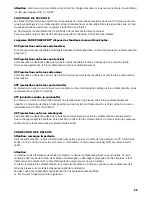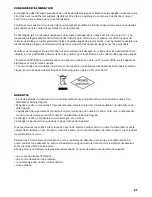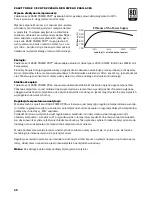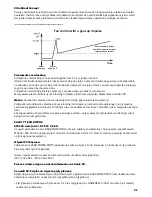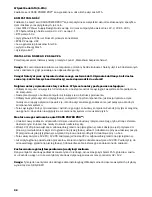
17
If this happens, you should immediately check the PC for errors.
For more info on troubleshooting see the “Troubleshooting” chapter.
The DARK POwER PRO
P9
Series has the following safety functions:
OCP (Over current protection)
If the load on the individual circuits exceeds the specified limit, the power supply is automatically switched off.
UVP (Undervoltage protection)
This safeguard is triggered if the voltage on the circuits drops below a certain limit.
The power supply is automatically switched off in this case.
OVP (Overvoltage protection)
The overvoltage safeguard is triggered if the voltage in the circuits is too high; the power supply is deactivated.
SCP (Short circuit safeguard)
The fuse protecting the power supply’s secondary circuits prevents physical defects of the power supply and
the components connected to it.
OTP (Temperature safeguard)
In the case of excessive heat build-up in the power supply, the power supply immediately and automatically
switches off.
You cannot switch it back on until it has cooled down. Please ensure that the PC has sufficient cooling.
OPP (overload protection)
This safeguard is triggered if the total output of the power supply exceeds the specified maximum load. This
can happen if the output of power supply is insufficient for the system (incorrectly dimensioned).
TROUBLESHOOTING
Please note
If you have an ATX system, the power supply is enabled by the motherboard in order to boot the PC. For this rea-
son, please refer to the motherboard or case manual to check whether the on/off switch is connected correctly.
Caution
:
There is a risk of fatal injury when working on power sources. If you notice traces of smoke, damaged cables
and exposure to liquids, immediately disconnect the power from the mains and do not use it again.
Never open the power supply case. High-voltage components in the interior of the power supply may still be live
after a longer period of disuse.
Please have any and all necessary repairs conducted by an authorized expert!
Opening the device will void your warranty.
If the system in which you installed the power supply does not work properly, check for these possible sources
of error first:
Check that the mains cable to the power supply is correctly and firmly plugged into the power supply and the
•
socket. Ideally, you should use a separate power socket for the computer power supply.
Check whether all connectors are correctly plugged in, and make any necessary adjustments, such as un
•
case of incorrect polarity.
Check the connection between the on/off switch on the case to the motherboard. Refer to the motherboard
•
manual if needed! Switch the power supply on by setting the switch to position “I” and then pressing the
on/off switch on the case. If the power supply still does not switch on, continue with the next item.
Check your system for possible short circuits or faulty hardware, making sure that you switch off the compu-
•
ter and disconnect all devices not required for the computer to start. Switch the computer back on. Repeat
this process and connect one device after each reboot, until you discover the fault. If the power supply does
not react due to a short circuit, wait for at least 5 minutes before switching back on as the device is equipped
with overload protection.



